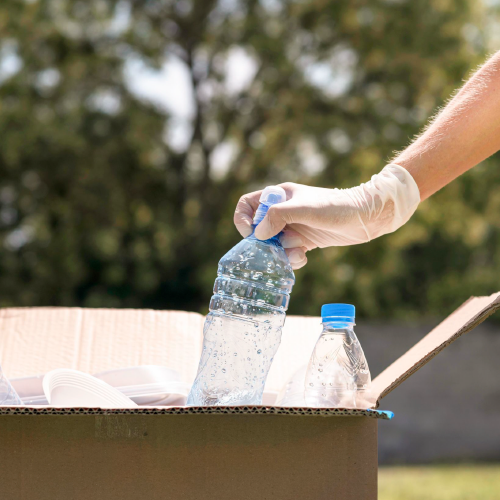
When it comes to creating an eco-friendly world, the UK is lagging behind our European neighbours. We recycle around 44% of all municipal waste, which is well below countries like Germany (67%), Switzerland (56%) and the Netherlands (53%), according to official statistics. But what’s causing this green living gap?
New research suggests confusion around how recycling works is impacting material sustainability. And it’s up to local authorities to put educational programmes in place that help more people to dispose of everyday waste in the appropriate manner.
Plastic’s not fantastic
While most communities support the idea of giving unwanted materials a second life, the truth of the matter is that many residents don’t understand how local recycling schemes work. And plastic products are the main source of concern.
A recent study by packaging company Hi-Cone has revealed that although three quarters of UK households recycle, most don’t know what happens to plastic after it’s left out for collection. This uncertainty contributes to materials being wrongly disposed of, impacting both the efficiency of waste management services and recycling success rates.
For example, many residents are not aware that there are seven types of recycling symbol on UK packaging – each with slightly different instructions. Failing to follow these instructions can result in refuse contamination, or recyclable materials being sent to the wrong place.
Similarly, discrepancies between what each council waste management team is able to recycle creates confusion across local communities. Certain materials might be suitable for kerbside collection on one street, but not on the next, because they are coordinated by different teams.
Education changes behaviour
Clearly the appetite for green refuse collections exists, but there’s a disconnect between consumer behaviour and waste management capabilities. Local authorities need to look at how best to close this gap, and it starts with a strong educational campaign.
As we discussed in our blog post on innovative ways to get households recycling more, the more creative councils can be, the better chance they have of getting residents participating in regional recycling initiatives.
From putting stickers on incorrectly sorted rubbish, to giving families vouchers for significantly reducing their household waste, well thought-out initiatives capture people’s imaginations.
The most successful campaigns combine education and fun. A novelty idea engages households, but the serious underlying message promotes long-term, sustainable behaviour changes. And given Hi-Cone’s stats, a campaign that helps communities to understand what, how and why plastic is recycled seems a logical place to start.
Stronger processes improve participation
Managing multi-material collections can be a complex matter, and misinformation around the recycling process may actually stem from the challenges that councils face when running their waste management operation.
Many local authorities are still reliant on spreadsheets and paper-based round sheets to issue instructions – or legacy systems that can’t keep pace with the intricacies of waste disposal processes and regulations.
To keep pace with the government’s target of recycling 65% of all municipal waste by 2035, council teams need to expand sustainable waste management processes, and encourage households to correctly recycle as many materials as possible. These two things work hand-in-hand, as the more rubbish that people correctly dispose of, the greater volume of recyclables councils will need to collect and process.
Raising the bar on regional recycling
Most of us want to look after the world we live in, and understand that recycling is a simple, practical way to dispose of waste packaging more responsibly. But without knowing what happens to the pieces of plastic or other material put out for collection, households find it hard to fully engage in community recycling programmes.
If local authorities can find interesting, inventive ways to educate people on the recycling process, it will promote higher participation and push the UK further up Europe’s eco-friendly behaviour standings. And if council teams can combine external educational marketing with internal waste management innovation, they will be perfectly poised to keep raising the bar on regional recycling rates.
Whitespace municipal waste management software is empowering councils across the UK to streamline recycling services. Book a free demo to find out more.
